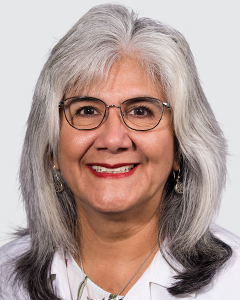Many young children can overcome speech and language delays, but early intervention is key. Parents and their child’s pediatrician need to be vigilant to spot the signs and start age-appropriate therapies.
Signs of Speech Delays
Your child’s pediatrician performs developmental screenings recommended by the American Academy of Pediatrics during each routine checkup. These screenings help identify a variety of potential problems as they emerge, including those with communications skills.
Such problems may become apparent in children as young as 9 months. By this age, your child should be making babbling sounds, which are considered a pre-linguistic communication behavior. By 18 to 24 months, toddlers are expected to say several words and add new words to their vocabulary, comprehend simple sentences and follow easy commands. Your child should be able to make two-word combinations by 2 years. Also, caregivers should be able to understand your child’s speech.
If the development of language is not occurring as expected, the pediatrician will refer your child to a specialist for a formal speech and language evaluation.
As your child grows, other criteria will be evaluated, including stuttering, lisping, problems expressing ideas, inability to follow instructions without visual cues, poor memory skills by 5 to 6 years and regression of milestones.
Screening Tools for Speech Delays
Identifying speech and language delays before a child is school age is important so that therapies and services can be started before the problems interfere with school learning. A variety of tools are used to screen for speech and language delays. Some are used to directly assess your child, and others are checklists that are completed by a parent or teacher.
Primary-care providers often use screenings that target a variety of developmental issues, with speech and language being just one part. Common tools for this are the Ages and Stages Questionnaire (ASQ) for parents and the Denver II, which is administered to the child. Screening instruments specifically for speech and language include the Language Development Survey (LDS) and the MacArthur-Bates Communicative Development Inventory (CDI). Parents complete both screenings, but they can be scored by a primary care provider.
Speech Therapies
Speech therapies are not one size fits all; they should be tailored to each child’s needs and age. Therapies may be provided in individual or small group settings. Your child’s speech-language pathologist (SLP) will determine which type of therapy will be the most effective. Therapies include:
- Articulation therapy, which improves ability to accurately produce speech sounds
- Language therapy that helps to develop skills in receptive and expressive language
- Fluency therapy, which rehabilitates stuttering
- Augmentative and alternative communication. This teaches sign language and other communication tools
- Oral motor therapy improves muscle tone on the face to generate correct sounds
- Social communication therapy teaches how to use language in a socially appropriate manner
Effects of Speech Delays
Overall, children with early speech and language delays have an increased risk of developing difficulty with reading, writing, paying attention and socialization when they enter school. In the short-term, these children have trouble with syntax, grammar, storytelling, speaking and other communication skills. They also tend to have behavioral problems and a lower threshold for frustration. In the long term, they are at high risk of developing learning disabilities that can persist into adolescence and adulthood.
Preventing Speech Delays
The development of vocabulary and language use depends heavily on family and early school experiences. It is important for families to provide a positive environment to stimulate speech development by telling stories, reading together, playing word games, singing songs and having conversations and one-on-one playtime.
Choose to Stay in Touch
Sign up to receive the latest health news and trends, wellness & prevention tips, and much more from Orlando Health.
Sign Up










